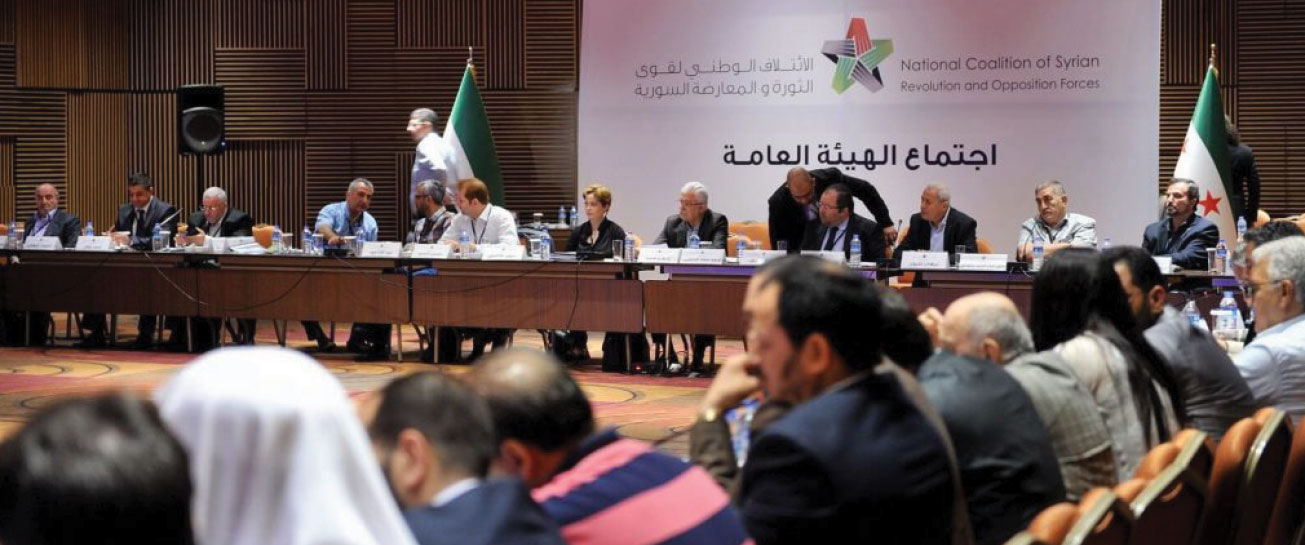Abdel Basset Sida, the former president of the so-called Syrian National Council, Abdel Basset Sida, launched a violent attack on “opposition movements,” and particularly the Syrian National Coalition. Sida stressed that, since the coalition was first created, it has suffered a deep structural crisis that is irreparable. This is because the coalition is mainly based on international actors whose priorities have shifted, meaning that the group works to achieve a function that no longer exists. Over time, the coalition has turned into a closed group controlled by people who trade positions and privileges.
In an article published by opposition websites, Sida stressed that the current situation in which the so-called Syrian “oppositions” operate is a dead-end. They have become extensions of regional and international ambitions, as global interest has declined in their groups, not to mention their loss of popular goodwill.
Sida pointed out that these realities apply not only to the coalition, but also to the so-called opposition Negotiating Commission and the Constitutional Committee. Sida added: “These platforms are perceived as private partisan or stalled projects, which operate within parameters set by the countries from which their name is derived.”
Read Also: New Rift Within Syrian Opposition due to Geneva Trip
Sida stressed that there are no indications that this situation could improve. He explained that the way in which the positions are set within the Coalition and other bodies exposes the depth of the crisis suffered by these opposition actors. They have become addicted to a formula of mutually stifling alliances—struck between several people who have been on the scene for many years—without any real tangible achievements on the ground. In addition, these actors have made no significant effort to overcome the stalemate that has arisen within the opposition groups.
Sida criticized the fact that some individuals had remained in the coalition for years, without either being re-elected or by applying clear and convincing criteria that had been agreed upon. Sida noted that the Negotiating Commission and the Constitutional Committee were formed by “copy-paste” processes, based on calculations and interference from external states.
Nasr Hariri headed the Syrian Negotiating Commission in November 2017 and remained in office, exceeding all term limits, until June 2020. During this period, the commission witnessed a disruption of its work that has continued until now due to several blocs —amongst them the Cairo Platform, the Coordination Body, Moscow Platform, some independents and military personnel — refusing to attend meetings due to organizational irregularities. These irregularities followed the election of the new Independent bloc in late 2019, as well as the extension of Hariri’s presidency of the commission.
“Given the inability or impossibility of holding elections, and the futility of adopting a quota formula that often leads to disruption, it may be necessary to leave existing bodies intact and encourage them to carry out internal reforms; at the same time, we must acknowledge that these reforms will be almost impossible to achieve,” Sida said.
The negotiating commission emerged from the Riyadh Conference, which was hosted in the Saudi capital in December 2015. It was agreed that the body would comprise 32 members, based in Riyadh. At the Riyadh 2 Conference in 2017, the opposition appointed members to the group’s new iteration, known as Negotiating Body 2. This group included a total of 50 members, and Hariri was chosen to succeed Riad Hijab.
The commission’s decision to re-elect the Brotherhood’s President Anas al-Abdah last June for the second time in a row greatly angered Syrian opposition activists.
This article was translated and edited by The Syrian Observer. The Syrian Observer has not verified the content of this story. Responsibility for the information and views set out in this article lies entirely with the author.


